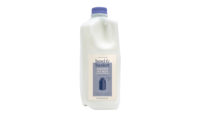Study unveils what’s next in private brand innovation
As retail undergoes significant change, private brands are setting the pace for the rest of the industry.

Daymon, Stamford, Conn., released the latest edition of its “Private Brand Intelligence Report,” which delivers an inside look into the emerging trends and strategies of private brand programs. The comprehensive report features insights and thought leadership in category, fresh, culinary and wellness, with proprietary analyses, consumer surveys, market research and global intelligence.
Balance of power shifting to private brands
As retail undergoes significant change, private brands are setting the pace for the rest of the industry. In 2018, there was a 4% increase in private brand sales, nearly six times the growth of national brands. That growth came from categories across the retail spectrum, including pet and food, among others.
Private brands have also become a crucial source of differentiation, store choice and consumer preference, as research finds that:
- 98% of national brand assortment is the same across retailers.
- 53% of consumers say they shop at a store specifically for its private brands.
- 81% buy private brand products on every shopping trip.
“Consumers are empowering retailers to be pioneers to offer new and unique private brand products that align with their constantly evolving preferences and needs,” says Michael Taylor, president. “With shoppers becoming ever more channel agnostic, retailers must pivot from category-led updates and focus on consumer-centric platform innovation. This will help them raise the profile of their private brand program and differentiate from their competition.”
Defining the path to innovation
Innovation is a key pillar to a successful private brand program. In 2018, best-in-class retailers launched more than three times as many new private brand products as compared to the industry average, a pivotal driver of their private brand growth, which outpaced the industry average by nearly five times.
The future of private brand innovation lies in three key areas:
Plant-centric. Rising consumer interest in cleaner and healthier products that limit their impact on the planet will spark continuous innovation in private brands across grocery, etc. Daymon estimates that the influence of this trend is expanding rapidly, going from a handful of categories in 2014 to over 90 categories in 2018 with emerging plant-centric options, representing over $13 billion in cumulative sales in 2018.
Functionality redefined. Macro dynamics (urbanization, new articulations of the modern family and democratization of information) are fragmenting consumer values and creating demand for new and innovative private brand products and services that cater to shoppers’ unique needs. Science, specialization and simplicity are embedded into the new definition of functionality, with 49% of consumers finding options that fit their specific lifestyles very important to brand choice.
360-degree sensory. Consumers are increasingly seeking brand and product immersion. Daymon’s research shows that 59% of consumers seek out engagement when they shop, and six in 10 crave experiences that stimulate the senses. To differentiate on and off the shelf, private brands should focus on sensory levers that facilitate dynamic interaction with their customers.
“Analyzing and understanding consumer behavior is essential as retailers aim to build an unbeatable and continuously differentiating private brand program,” adds Taylor. “The Daymon Private Brand Intelligence Report offers detailed explanations of these emerging trends and the factors driving them, as well as strategic suggestions for how retailers can embrace bold innovation in their private brand programs, making it a crucial source of market intelligence.”
Looking for a reprint of this article?
From high-res PDFs to custom plaques, order your copy today!





